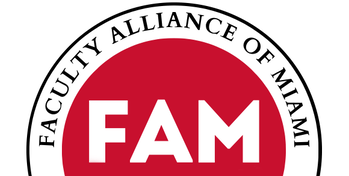Biologists from across the country and beyond have signed our petition in support of the tenured faculty recommended for termination by Miami’s administration (and of the conservatory manager who has already been forced out). They find the administration’s actions greatly concerning. Please read their comments—only a small selection of the hundreds of comments on our petition. We will post more soon.
From Kenneth Cameron, Director of the Wisconsin State Herbarium and Professor of Botany, University of Wisconsin-Madison:
“I am Chair of the nation’s largest university Botany Department. We would take a more humane and less extreme approach to addressing an issue like this. Academics need support not persecution. Please reconsider these actions.”
From Mary Endress, Department of Systematic and Evolutionary Botany, University of Zurich (Switzerland):
“I have worked with this plant family all my professional career. The great majority of the genera produce bioactive compounds, which are used in folk medicine and could be considered drugs. In our research facility at the University of Zurich we have had any number of similar plants in cultivation for years, and they have provided material for study to a number of botanists. It is ridiculous to punish the staff involved because they knew such a plant was being cultivated. It would appear whoever made this decision, knows very little about botany, the importance of living material for study—or research in general.”
From Sarah Johnson, Associate Professor of Biology and Natural Resources Greenhouse director, Northland College:
“As the director of a small academic greenhouse at a liberal arts college, I am astonished to hear of how Miami University employees and a student were harshly treated in the unfortunate case of the iboga tree. Maintaining a diverse collection of plants for academic purposes is typical of academic greenhouse collections. In recent years, my academic greenhouse received donations of plants from several regional University greenhouses. It is common to propagate plants to ensure collections remain alive, and to share these with other academic institutions. I have no idea if some of the plants in my collection are hallucinogenic, but I trust that people will not misuse these scientific collections. It has never even crossed my mind to be concerned with this. This is clearly a case where good intentions on the part of your staff have been misunderstood by your administration officials. I urge you to use this as a learning opportunity that ends on a positive note for all involved. Accidents happen.”
From Mark Peifer, the Michael Hooker Distinguished Professor of Biology at UNC Chapel Hill:
“I urge you to reverse this disproportionate action.”

Leave a Reply